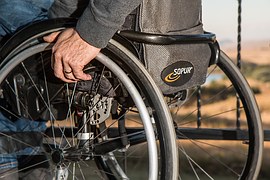Understanding Maximum Medical Improvement In A Personal Injury Case.
“Maximum medical improvement” [MMI] is a term of art that has important medical and legal consequences. In the medical context, it is a determination by a doctor that a patient has reached a plateau and achieved the maximum benefit from remedial medical care.

In the opinion of the doctor rendering the determination, the injured person will receive no additional ongoing benefit from future remedial care. Remedial care in this context is understood to mean care designed to assist, aid or otherwise speed the healing process. Remedial care can be anything from physical therapy, to rest to surgery. Once an injured individual has reached maximum medical improvement they may continue to benefit from medical care and attendance that no longer is directed at treating the underlying problem, but rather that which is designed to alleviate the symptoms of that underlying problem or injury. This is often referred to as palliative care. As Attorney Eric T. Kirk will tell you.
A determination of maximum medical improvement is a pivotal moment in a personal injury claim as well as in a workers’ compensation case.
If the workers’ compensation commission accepts a doctor’s opinion that an injured worker has reached maximum medical improvement, the right to collect temporary disability benefits ceases. Many insurance company lawyers frequently argue that a finding of maximum medical improvement would likewise terminate an injured worker’s right to receive ongoing additional remedial medical care. In the arena of personal injury, a determination of maximum medical improvement is a watershed moment. At this point, the focus of the case ships from investigation to resolution or litigation. When an injured individual has reached the conclusion of their course of medical treatment, important evidence in evaluating their case becomes available. I know
- The full nature and extent of the injuries sustained
- The cost of medical care to date
- The amount of wages lost to date
Moreover, at this point, a physician should be able to evaluate if the individual needs future medical care, or is likely to lose wages in the future, or if the injured person has sustained a permanent impairment. It is at this point I typically feel comfortable submitting a demand for settlement with all supporting evidence to an insurance company. There are certainly situations where an injured person has a relapse or a worsening of symptoms that require a return to their physician. In most cases, the point at which an individual reaches maximum medical improvement is an appropriate juncture to begin a dialogue with the insurance company and probe the possibility of settlement of the case short of litigation.



